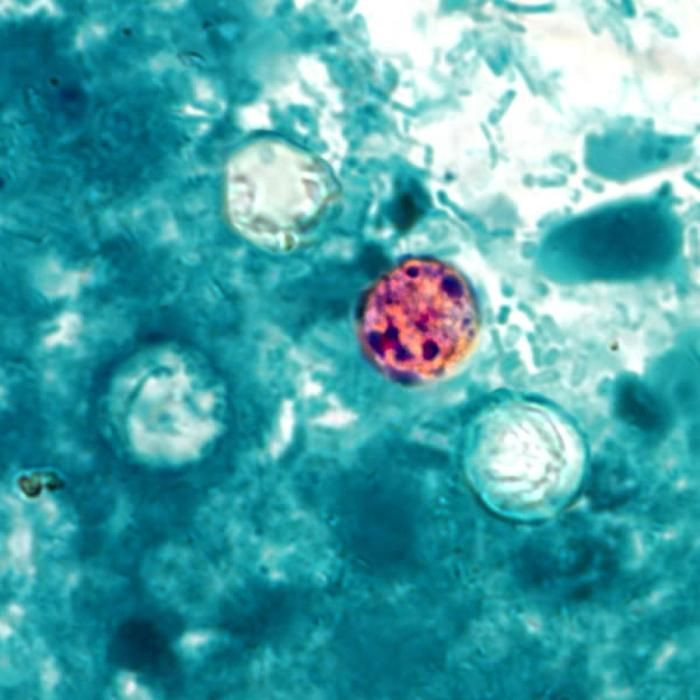Rare Cyclospora Parasite Sickens 106 In The Midwest

In parts of Iowa and Nebraska, people have become infected with cyclospora, a rare parasite that causes major gastrointestinal symptoms. The source of the outbreak is still a mystery to public health officials, who speculate that the infections originate from contaminated fruits or vegetables.
As of Monday morning, the Iowa Department of Public Health reports 71 cases of cyclosporiasis, the infection caused by cyclospora, throughout the state. In neighboring Nebraska, 35 cases were reported as of Friday, mainly concentrated around Omaha in the eastern part of the state.
Reports of the illness began in mid-June, though new cases have been confirmed in recent days. Public health officials believe that the contaminated fruits or vegetables have probably all been consumed or thrown away by now, and thus have little hope of finding the source of the outbreak. Still, people should take precautions by washing fruits and vegetables thoroughly to minimize the risk of infection, or cook raw vegetables in hopes of killing the parasite.
According to the Mayo Clinic, the hallmark symptom of cyclospora infection is severe diarrhea, sometimes accompanied by a loss of appetite, nausea, vomiting, and general feelings of malaise. Symptoms typically manifest 2-11 days after exposure. If you experience diarrhea symptoms for more than 2 days, officials urge that you go to to a doctor to be tested.
Treatment for cyclosporiasis involves antibiotics, which can shorten the duration of the illness. Left untreated, a cyclospora infection could last for an average of 57 days.
Prior to the outbreak, the rare cases of cyclosporiasis reported in the U.S. have generally occurred in people who traveled to countries with poor water supplies or people who have weakened immune systems, such as those afflicted with HIV. In the last decade, there have been only 10 reported cases in Iowa. Past outbreaks in the U.S. and Canada have been traced back to lettuce, basil, and imported raspberries.



























